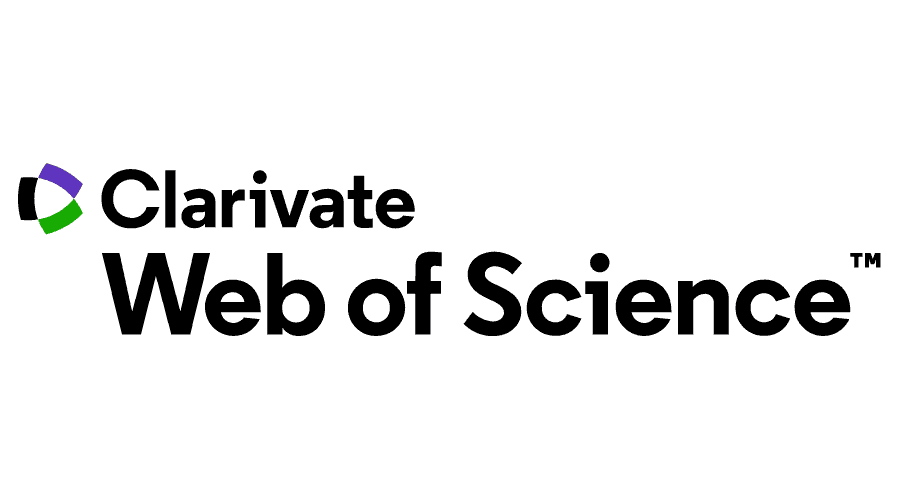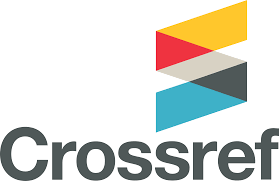Abstract
Research Aims: This study explores the dynamics between crisis leadership (CLE) and sustainable performance (SP) during the COVID-19 pandemic, investigating the mediating roles of innovation capability (IC) and business continuity management (BCM).
Design/Methodology/Approach: Utilising questionnaires from 209 respondents and employing quantitative approaches, this research examines the connections between CLE, IC, BCM, and SP, employing PLS-SEM for analysis.
Research Findings: CLE significantly influences both IC and BCM, while IC positively impacts SP. This study also highlights the moderating roles of IC and BCM in enhancing organisational resilience.
Theoretical Contribution/Originality: The study unveils the substantial influence of CLE on IC and BCM, emphasising their importance in bolstering SP. These findings deepen our understanding of crisis leadership, innovation capability, BCM, and sustainable performance dynamics.
Managerial Implication in the Southeast Asian Context: IPMA findings underscore BCM's significance for organisational sustainability, emphasising its alignment with effective CLE. Prioritising BCM alongside fostering IC is essential for organisational adaptability and innovation.
Research Limitation & Implications: While focusing on specific variables, the study acknowledges the potential influence of other factors that are not mentioned. Future research should explore these aspects, incorporating the Resource-Based View and Dynamic Capabilities Theory for a comprehensive understanding.
References
Aas, T. H., & Breunig, K. J. (2017). Conceptualizing innovation capabilities: A contingency perspective. Journal of Entrepreneurship, Management and Innovation, 13(1), 7-24.
Alharthi, M. N. A. N., & Khalifa, G. S. (2019). Business continuity management and crisis leadership: an approach to re-engineer crisis performance within Abu Dhabi Governmental entities. International Journal on Emerging Technologies, 10(2), 32-40.
AlNuaimi, B. K., Singh, S. K., & Harney, B. (2021). Unpacking the role of innovation capability: Exploring the impact of leadership style on green procurement via a natural resource-based perspective. Journal of business research, 134, 78-88.
Astuti, P. B., & Mahardhika, A. S. (2020). COVID-19: How does it impact to the Indonesian economy?. Jurnal Inovasi Ekonomi, 5(02), 85-92.
Atarodi, A., Dastani, M., Ghorbani, M., & Atarodi, A. (2021). The role of mass media and social media in developing awareness of self-care behavior against the outbreak of Covid-19. Library Philosophy and Practice, 1-12.
Bakoğlu, R., & Yıldırım, O. B. A. (2016). The role of sustainability in long term survival of family business: Henokiens revisited. Procedia-Social and Behavioral Sciences, 235, 788-796.
Barney, J. B. (1995). Looking inside for competitive advantage. Academy of Management Perspectives, 9(4), 49-61.
Blaique, L., Abu-Salim, T., Asad Mir, F., & Omahony, B. (2024). The impact of social and organisational capital on service innovation capability during COVID-19: the mediating role of strategic environmental scanning. European Journal of Innovation Management, 27(1), 1-26.
Bligh, M. C., Kohles, J. C., & Yan, Q. (2018). Leading and learning to change: the role of leadership style and mindset in error learning and organizational change. Journal of Change Management, 18(2), 116-141.
Boin, A., Kuipers, S., & Overdijk, W. (2013). Leadership in times of crisis: A framework for assessment. International review of public administration, 18(1), 79-91.
Boomsma, A. (1982). The robustness of LISREL against small sample sizes in factor analysis models. Systems under indirect observation: Causality, structure, prediction, 149-173.
Brataas, K. (2018). Crisis communication: Case studies and lessons learned from international disasters. Milton Park, Abingdon, Oxfordshire: Routledge.
Castillo, C. (2005). Disaster preparedness and business continuity planning at Boeing: An integrated model. Journal of Facilities Management, 3(1), 8-26.
Chatterjee, S., & Chaudhuri, R. (2022). Supply chain sustainability during turbulent environment: Examining the role of firm capabilities and government regulation. Operations Management Research, 15(3), 1081-1095.
Davis, K. M., & Gardner, W. L. (2012). Charisma under crisis revisited: Presidential leadership, perceived leader effectiveness, and contextual influences. The Leadership Quarterly, 23(5), 918-933.
El-Chaarani, H. (2021). COVID-19: problems, challenges and business opportunities. Journal of Contemporary Research in Business Administration and Economic Sciences (JCRBAES), 1(1), 1-4.
El-Kassar, A. N., & Singh, S. K. (2019). Green innovation and organizational performance: The influence of big data and the moderating role of management commitment and HR practices. Technological forecasting and social change, 144, 483-498.
Faulks, B., Song, Y., Waiganjo, M., Obrenovic, B., & Godinic, D. (2021). Impact of empowering leadership, innovative work, and organizational learning readiness on sustainable economic performance: an empirical study of companies in Russia during the COVID-19 pandemic. Sustainability, 13(22), 12465.
Ferreira, J., & Coelho, A. (2020). Dynamic capabilities, innovation and branding capabilities and their impact on competitive advantage and SME's performance in Portugal: the moderating effects of entrepreneurial orientation. International Journal of Innovation Science, 12(3), 255-286.
Ferreira, J., Coelho, A., & Moutinho, L. (2020). Dynamic capabilities, creativity and innovation capability and their impact on competitive advantage and firm performance: The moderating role of entrepreneurial orientation. Technovation, 92, 102061.
García-Machado, J. J., & Martínez-Ávila, M. (2019). Environmental performance and green culture: The mediating effect of green innovation. An application to the automotive industry. Sustainability, 11(18), 4874.
Hair Jr, J. F., Hult, G. T. M., Ringle, C. M., Sarstedt, M., Danks, N. P., & Ray, S. (2021). Partial least squares structural equation modeling (PLS-SEM) using R: A workbook (p. 197). London: Springer Nature.
Höse, K., Süß, A., & Götze, U. (2022). Sustainability-related strategic evaluation of business models. Sustainability, 14(12), 7285.
Hu, C., Yun, K. H., Su, Z., & Xi, C. (2022). Effective crisis management during adversity: organizing resilience capabilities of firms and sustainable performance during COVID-19. Sustainability, 14(20), 13664.
Hutajulu, R. S., Susita, D., & Eliyana, A. (2021). The effect of digitalization and virtual leadership on organizational innovation during the COVID-19 pandemic crisis: A case study in Indonesia. The Journal of Asian Finance, Economics and Business, 8(10), 57-64.
Ibrahim, N., Ismail, A., Mat, N., & Erhan, T. (2023). Relationship Between Transformational Leadership and Employees' Creativity with Psychological Empowerment as Mediator. The South East Asian Journal of Management, 17(2), 1-25.
Kalogiannidis, S. (2020). Covid impact on small business. International Journal of Social Science and Economics Invention, 6(12), 387-391.
Kaul, V., Shah, V. H., & El-Serag, H. (2020). Leadership during crisis: lessons and applications from the COVID-19 pandemic. Gastroenterology, 159(3), 809-812.
Kim, L. L., & Amran, A. (2018). Factors leading to the adoption of business continuity management (BCM) in Malaysia. Global Business and Management Research: An International Journal, 10(1), 179-196.
Krell, E. (2006). Business continuity management. NY: American Institute of Certified Public Accountants.
Lam, L., Nguyen, P., Le, N., & Tran, K. (2021). The relation among organizational culture, knowledge management, and innovation capability: Its implication for open innovation. Journal of Open Innovation: Technology, Market, and Complexity, 7(1), 66.
Leiß, G., & Zehrer, A. (2018). Intergenerational communication in family firm succession. Journal of Family Business Management, 8(1), 75-90.
Liu, H. M., & Yang, H. F. (2020). Network resource meets organizational agility: Creating an idiosyncratic competitive advantage for SMEs. Management Decision, 58(1), 58-75.
Maak, T., Pless, N. M., & Wohlgezogen, F. (2021). The fault lines of leadership: Lessons from the global Covid-19 crisis. Journal of Change Management, 21(1), 66-86.
Madeira, A., Palrão, T., & Mendes, A. S. (2020). The impact of pandemic crisis on the restaurant business. Sustainability, 13(1), 40.
Margherita, A., & Heikkilä, M. (2021). Business continuity in the COVID-19 emergency: A framework of actions undertaken by world-leading companies. Business horizons, 64(5), 683-695.
Mishra, P. (2017). Green human resource management: A framework for sustainable organizational development in an emerging economy. International Journal of Organizational Analysis, 25(5), 762-788.
Neuman, W. L. (2014). Social Research Methods: Qualitative and Quantitative Approaches. Upper Saddle River, New Jersey: Pearson Education.
Otache, I., & Usang, O. U. E. (2022). Innovation capability and SME performance in times of economic crisis: does government support moderate?. African Journal of Economic and Management Studies, 13(1), 76-88.
Pham, H., & Kim, S. Y. (2019). The effects of sustainable practices and managers’ leadership competences on sustainability performance of construction firms. Sustainable Production and Consumption, 20, 1-14.
Pinzaru, F., Zbuchea, A., & Anghel, L. (2020). The Impact of the COVID-19 Pandemic on Business. A preliminary overview. Strategica. Preparing for Tomorrow, Today, 721-730.
Porter, M. E. (2008). The five competitive forces that shape strategy. Harvard business review, 86(1), 78-94.
Rezaee, Z., Tsui, J., Cheng, P., & Zhou, G. (2019). Business sustainability in Asia: Compliance, performance, and integrated reporting and assurance. Hoboken, New Jersey: John Wiley & Sons.
Rhee, M. U. N. S. U. N. G., & Stephens, A. R. (2020). Innovation-orientated technology assimilation strategy and Korean SMES’enhancing innovation capability, competitive advantage and firm performance. International Journal of Innovation Management, 24(06), 2050081.
Ritter, T., & Pedersen, C. L. (2020). Analyzing the impact of the coronavirus crisis on business models. Industrial Marketing Management, 88, 214-224.
Sawalha, I. H. S. (2013). Organisational performance and business continuity management: a theoretical perspective and a case study. Journal of business continuity & emergency planning, 6(4), 360-373.
Sawalha, I. H. (2020). Business continuity management: use and approach’s effectiveness. Continuity & Resilience Review, 2(2), 81-96.
Shafi, M. (2021). Sustainable development of micro firms: examining the effects of cooperation on handicraft firm's performance through innovation capability. International Journal of Emerging Markets, 16(8), 1634-1653.
Shi, Y., Zou, B., Wang, C., & Li, O. (2022). Spurring innovation through intentional organizational crisis: the moderating effects of past performance and resources allocation capability. European Journal of Innovation Management.
Sigalas, C. (2015). Competitive advantage: the known unknown concept. Management Decision, 53(9), 2004-2016.
Speight, P. (2011). Business continuity. Journal of applied security research, 6(4), 529-554.
Susilawati, S., Falefi, R., & Purwoko, A. (2020). Impact of COVID-19’s Pandemic on the Economy of Indonesia. Budapest International Research and Critics Institute-Journal (BIRCI-Journal), 3(2), 1147-1156.
Teece, D. J., Pisano, G., & Shuen, A. (1997). Dynamic capabilities and strategic management. Strategic management journal, 18(7), 509-533.
Wang, S., & Huang, L. (2022). A study of the relationship between corporate culture and corporate sustainable performance: evidence from Chinese SMEs. Sustainability, 14(13), 7527.
Weaven, S., Quach, S., Thaichon, P., Frazer, L., Billot, K., & Grace, D. (2021). Surviving an economic downturn: Dynamic capabilities of SMEs. Journal of Business Research, 128, 109-123.
Wilcox, R. (2017). Modern statistics for the social and behavioral sciences: A practical introduction. Boca Raton: Chapman and Hall/CRC.
Woodfield, P., Woods, C., & Shepherd, D. (2017). Sustainable entrepreneurship: another avenue for family business scholarship?. Journal of Family Business Management, 7(1), 122-132.
Yoo, S., Keeley, A. R., & Managi, S. (2021). Does sustainability activities performance matter during financial crises? Investigating the case of COVID-19. Energy Policy, 155, 112330.
Younis, H., & Sundarakani, B. (2019). The impact of firm size, firm age and environmental management certification on the relationship between green supply chain practices and corporate performance. Benchmarking: An International Journal, 27(1), 319-346.
Yusuf, F. A., & Suseno, B. D. (2020). Sustainability innovativeness agility as an intervening variable in the managerial competence to business performance relationship of a family-owned company. International Journal of Inovation, Creativity and Change, 13(9).479–498.
Recommended Citation
Kurniawan, Daniel; Tambunan, Damelina; and Dewi, Grace Citra
(2024)
"Relationships Among Crisis Leadership, Innovation Capability, Implementation of Business Continuity Management, and Sustainable Performance in The Covid-19 Pandemic,"
The South East Asian Journal of Management: Vol. 18:
No.
1, Article 6.
DOI: 10.21002/seam.v18i1.1457
Available at:
https://scholarhub.ui.ac.id/seam/vol18/iss1/6











